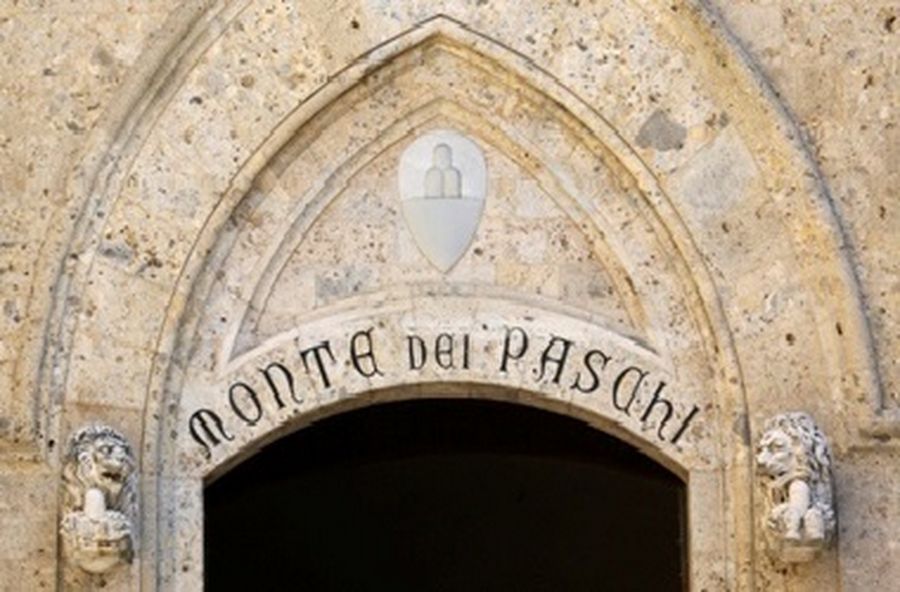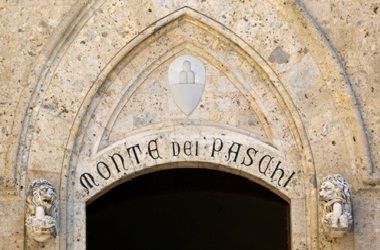
Banca Monte dei Paschi di Siena expects to close the sale of €26bn of bad loans within days following a last-ditch effort from Italy’s industry-backed rescue fund to revive a deal that looked to have collapsed.
The proposed ABS deal backed by non-performing loans would unlock billions of euros of public funds to recapitalise MPS, saving the Tuscan bank from a politically sensitive resolution or liquidation, and ending months of uncertainty since it failed to recapitalise privately last year.
The rescue fund, Atlante II, has been in talks to buy the bad loans for months, and had initially planned to invest alongside Fortress and Elliott. The US funds pulled out of talks earlier this month, in a move that seemed to have derailed the deal entirely.
But the collapse of Banca Popolare di Vicenza and Veneto Banca has inadvertently helped revive the sale. Atlante II had earmarked funds to invest in bad loans from the two failed banks, but will now divert that money into the MPS NPL deal.
“Those banks are now in liquidation so it is not possible to do a deal anymore,” said one source close to the talks. “We are talking days, not weeks to close the [MPS ABS] deal … it will be the biggest securitisation of non-performing loans ever in Europe.”
RAISING EXTRA CASH
Atlante II is currently seeking to raise extra cash by selling parts of two NPL ABS deals it holds. The fund currently has €1.6bn available, but might need as much as €1.8bn to buy the mezzanine and junior tranches of the MPS bad loans securitisation.
The source added that the sales could close in days, after which the MPS bad loan deal could then go through. The senior tranche of the deal would be repackaged under a state-guarantee programme and sold to third-party investors.
A private sale of bad loans was a key condition set by the European Commission to unlocking public money to recapitalise the bank. Because of writedowns on assets – the NPLs are being sold at 20% of face value – MPS will likely need €6bn of new capital.
“My understanding is that the [MPS ABS deal] will still go ahead,” said one analyst close to MPS. “We expect some kind of announcement imminently … we expect it to go through fine. Atlante is expected to spend all the money it has left on Monte dei Paschi.”
Vicenza and Veneto were declared “failing or likely to fail” over a week ago by the European Central Bank, triggering insolvency proceedings under Italian law and a sweetheart deal with Intesa Sanpaolo to take over some of the banks’ assets and liabilities.
The deal with Intesa has been heavily criticised. The larger Italian lender bought €26bn of the two banks’ performing loans, a €4bn portfolio of riskier loans and almost €11bn of additional financial assets and deferred tax assets for the nominal value of €1.
INTESA’S BACK COVERED
But the bank is to receive a €4.8bn cash payment from the government to maintain its capital levels and dividend policy, and to cover the cost of restructuring. It will also receive €12bn of guarantees against further losses linked to the acquisition.
“Is this what the world’s come to?” asked one banker who specialises in financial institutions. “Intesa has managed to pull off the deal of the century. It just shows how desperate the government was to resolve the situation quickly to avoid panic.”
Both Vicenza and Veneto passed bank stress tests when they were examined in 2014. An ECB examination a year later led to the two banks raising €2.5bn of equity, money for which came from the original Atlante fund after attempts to raise cash in the market failed.
The financial institutions that put money into Atlante – Intesa and UniCredit injected around €800m each – are now sitting on heavy losses after the equity in Vicenza and Veneto was completely wiped out alongside junior debt held by larger investors.
Senior bonds were left unscathed. Intesa has taken on those liabilities as part of the deal and will continue to service the bonds.
“I think it’s completely wrong,” said Michael Huenseler, head of credit portfolio management at Assenagon. “It incentivises people to buy even more senior debt and later argue that that was by mistake, and they have been advised incorrectly. It opens the door to even bigger risk in the future. I think it’s just plain wrong and they set a precedent that is going in the wrong direction.”
Retail investors who bought junior bonds will be compensated via a scheme to be funded by all of Italy’s banks.
